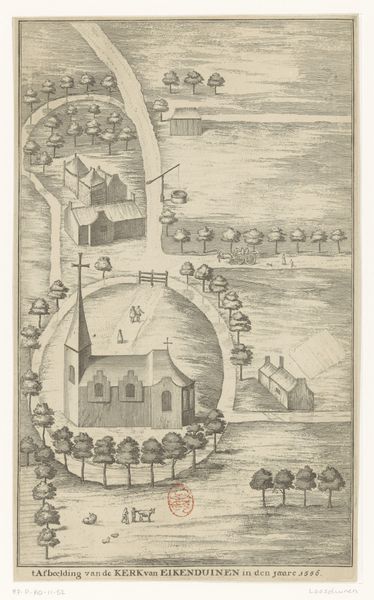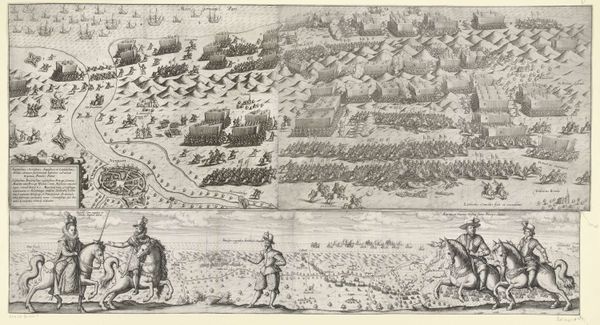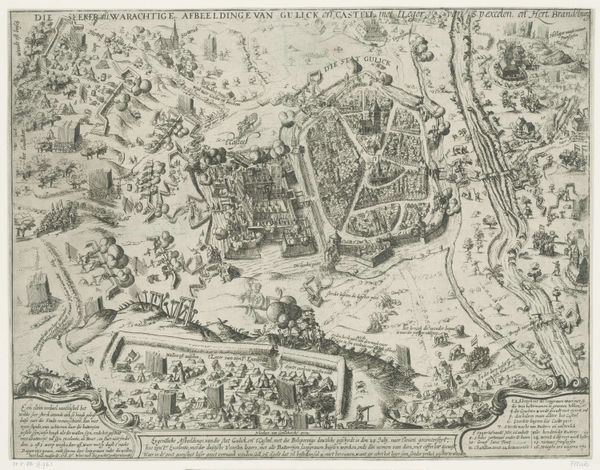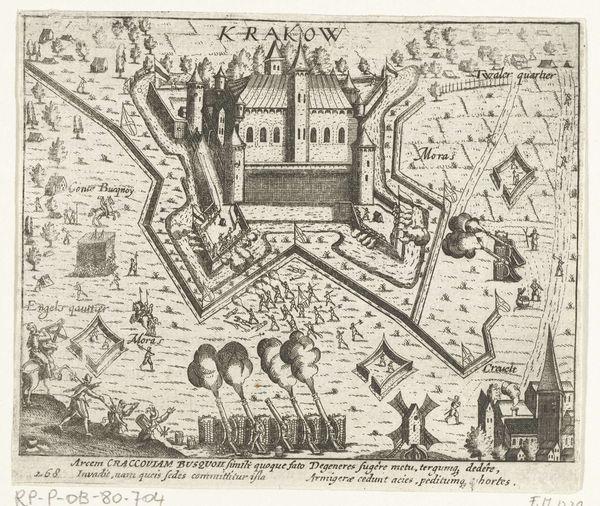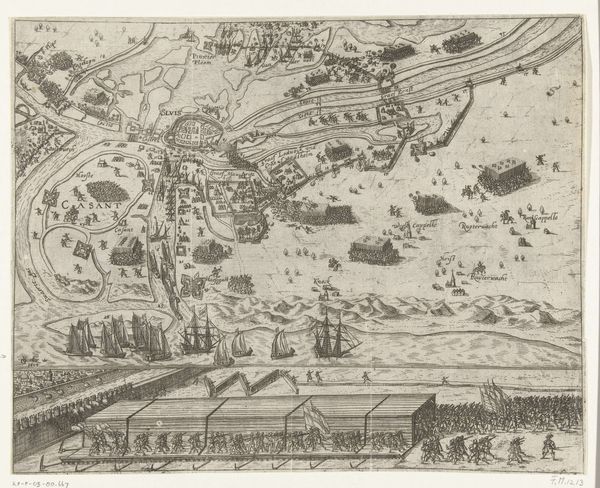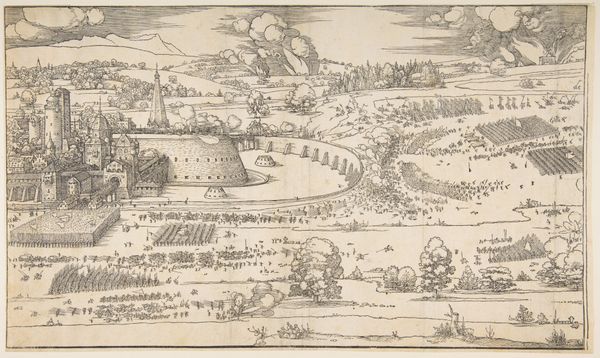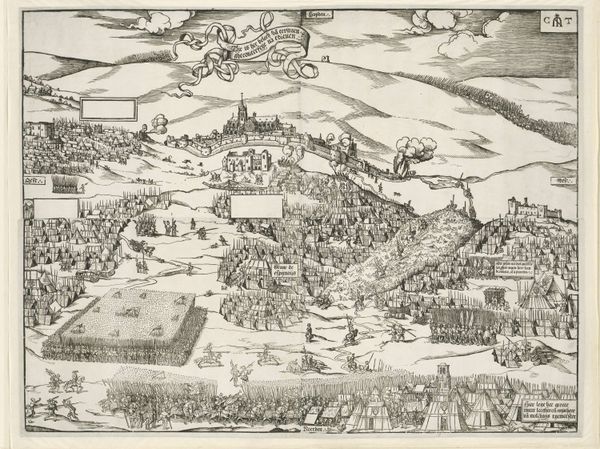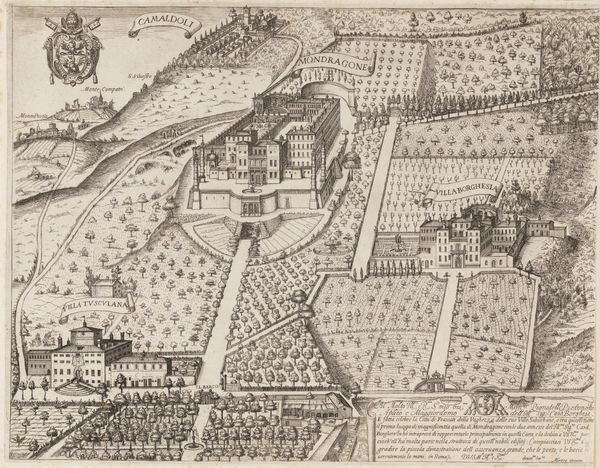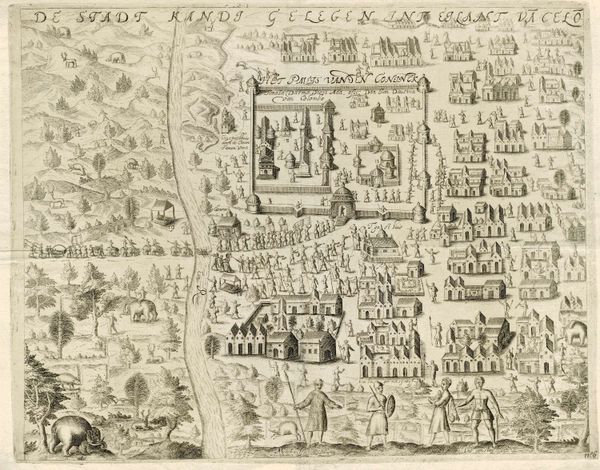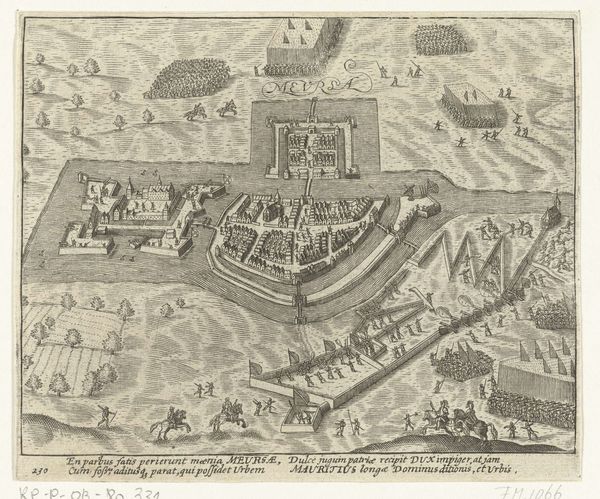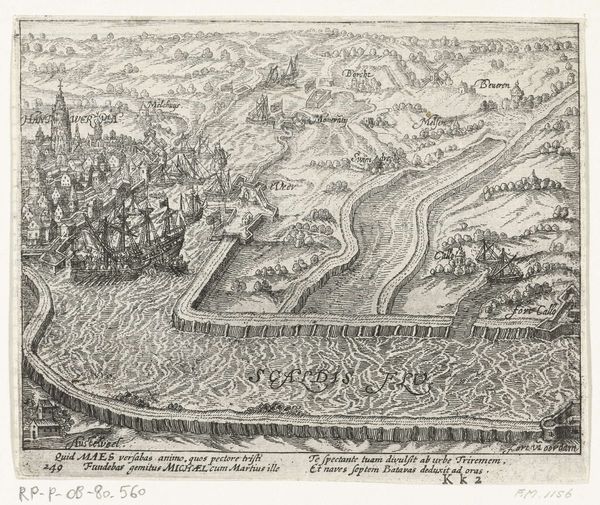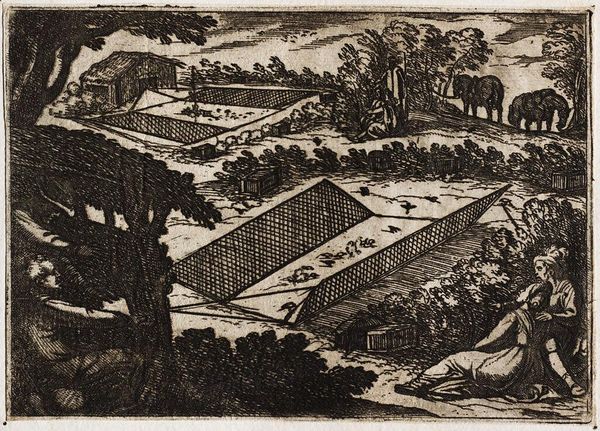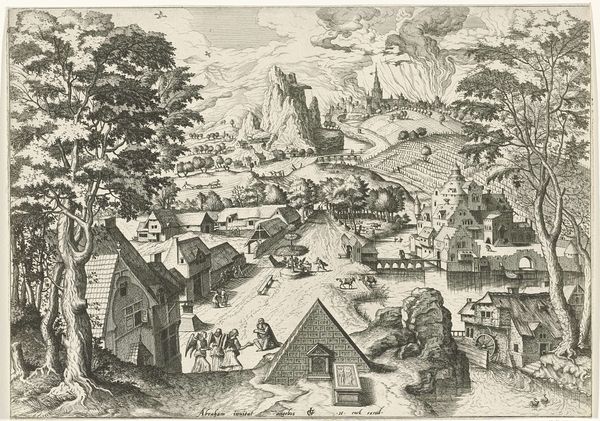
Copyright: CC0 1.0
Curator: Editor: This is "The Town of Secota" by Theodor de Bry, made around the late 16th century. It's fascinating how the engraving depicts the town layout and daily life. What strikes you about this piece? Curator: What interests me most is the depiction of labor and material culture. Notice how De Bry meticulously illustrates the construction of houses and the cultivation of crops. This wasn't just about showing what Secota looked like, but about presenting a vision of how the inhabitants interacted with their environment to produce their means of survival. How do you see this emphasis on material production shaping our understanding of the image? Editor: I see that, yes. I hadn't considered the level of detail given to farming and the buildings as a statement about their society. It also makes me think about the labor involved in creating this image – the engraving process itself. It’s a copy of White's original watercolor, right? Curator: Exactly. So, what does it mean that this image, intended to portray a “new world,” is itself a product of European labor and technology, mediated through layers of representation and consumption? Editor: I guess it highlights the complex exchange of labor and materials, both within Secota and between cultures. It makes you think about the power dynamics involved in even depicting a place. Thanks, that was a different way to consider this artwork!
Comments
No comments
Be the first to comment and join the conversation on the ultimate creative platform.
